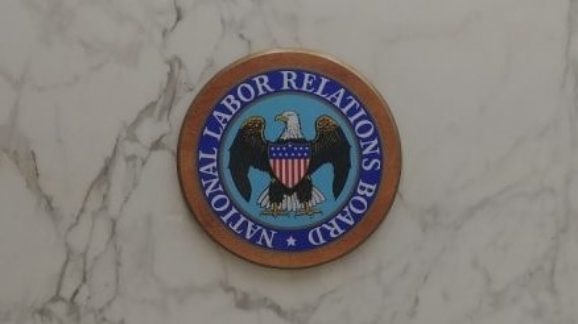Biden’s pro-labor policies will linger past fall election

Photo Credit: Getty
The Biden administration is trying to cement a pro-union labor policy into place for the next four years, even if likely Republican candidate Donald Trump wins this fall. The administration is pushing the Senate to re-up Lauren McFerran, the current chairwoman of the National Labor Relations Board (NLRB), the independent federal agency that oversee unions.
McFerran, a former Ted Kennedy staffer, has been a pro-union advocate during her term chairing the board. Her current five-year term expires on December 16. Should she get re-upped by the Senate, she’ll be running the board until late 2029. That will ensure the five-seat board will have at least a functional 2-1 quorum of Democratic and Republican appointees until August 2028, well into the next presidential administration. Republicans allege that Senate Health Education Labor and Pensions Committee Chairman Sen. Bernie Sanders (D-VT) is trying to push McFerran through without hearings.
That’s significant because the NLRB is the agency that officially recognizes unions, which have made a major push to organize more and different sectors of the economy in recent years. The board reported a 35 percent increase in union recognition petitions in the first half of 2024. That was up from a 16 percent increase the previous year.
The board itself attributed the 2024 increase to its 2023 Cemex decision, which altered the rules for union representation petitions. Under Cemex, if a union alleges an unfair practice by management prior to a workplace organizing election, the board has the option of canceling the election and automatically recognizing the union instead. A union could be recognized even if a majority of the workers didn’t favor it.
It’s a major boost to union organizing efforts since, according to the board’s current majority, even mildly skeptical comments by management about unions can constitute an unfair labor practice. Unsurprisingly, unfair labor practice complaints increased by 7 percent in 2024.
The current (majority Democratic) NLRB has moved in several other directions to boost union organizing efforts. It attempted to lower the legal standard for the use of preliminary injunctions, a move even liberal Supreme Court justices rejected. The NLRB has also attempted to expand the Joint Employer rule, the legal standard for when one business can be held legally responsible for workplace violations at a second business. The courts also blocked this NLRB effort, and the board is still considering an appeal.
The next president, if Republican, won’t immediately be able to reverse this — but may be able to stymie the NLRB by removing its quorum. The NLRB is an independent agency whose five members are appointed by the president and confirmed by the Senate and who serve staggered five-year terms. The board will be able to swing in either partisan direction, depending on whether McFerran gets re-upped or replaced and who wins the fall presidential election.
Currently the board is 3-1 Democratic, with one open seat. McFerran was re-nominated along with a Republican management-side lawyer named Joshua Ditelberg. Approving both would give the board a 3-2 Democratic majority. By tradition, the president reserves two spots for the other party. This isn’t much of a concession, though. The board operates by simple majority. The minority party members mainly just write dissents on the majority’s decisions.
NLRB nominees can be filibustered. As long as the GOP has at least 40 votes in the Senate, its members can prevent McFerran’s nomination from coming to the Senate floor. Democrats could similarly block a GOP president’s picks.
Even if McFerran’s seat goes empty, that would only create a 2-1 Democratic majority on the board; it would still be a functioning quorum in which the remaining Democratic appointees would call the shots. The term of the board’s lone Republican, Marvin Kaplan, is the next to expire, ending on August 27, 2025. Democratic member David Prouty’s term expires in August 2026. Democrat Gwynne Wilcox’s term expires in August 2028. The fifth seat, which Ditelberg was nominated for, is currently open.
The Biden administration therefore has a Democratic NLRB majority locked until at least August 2026, when Prouty’s term expires. That majority could remain until at least August 2028, if the Senate confirms McFerran for another term.
Going by tradition, a GOP president would have to wait until Prouty’s term expires before they could appoint a republican. The earliest the GOP president could ordinarily swing the board towards the Republicans would be mid-2026.
The key word there is “ordinarily.” Nothing in the National Labor Relations Act, the law that created the NLRB, says the board must be split between the two parties. That’s just tradition. A president could appoint only people from their own party if they desired, though getting them approved by the Senate would likely be very hard, especially if they departed from this tradition.
It is possible that the Senate could change its own nomination rules, which would be a whole other messy can of worms that few on either side seem to have the stomach for. On the other hand, if the last few years in Washington have taught us anything, it is to expect the unexpected.
